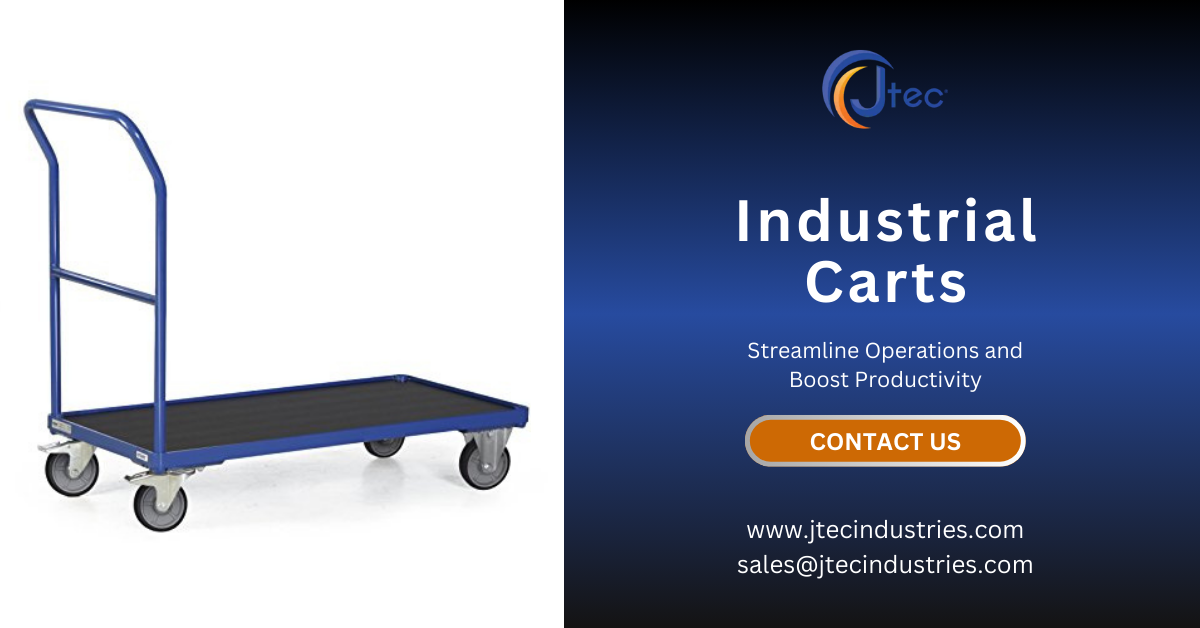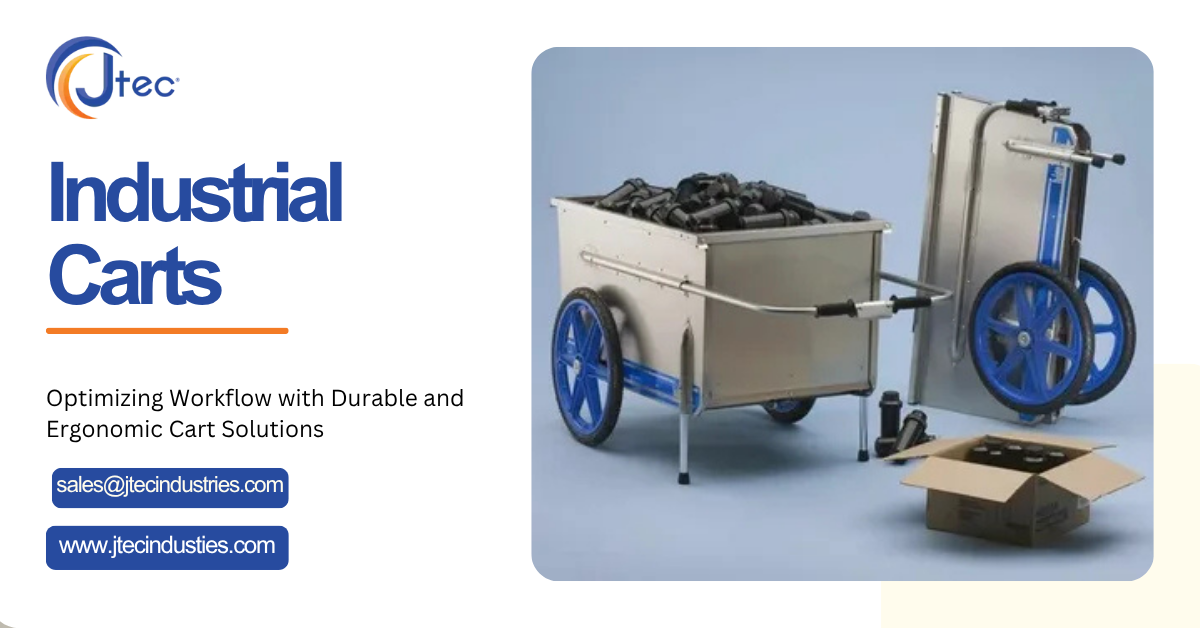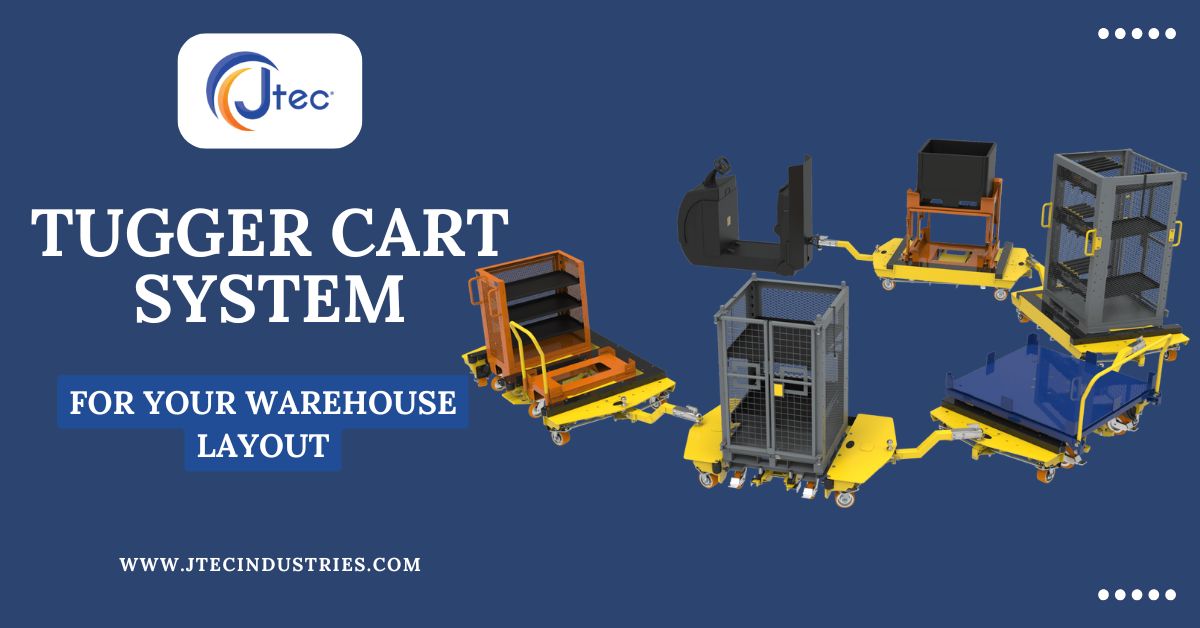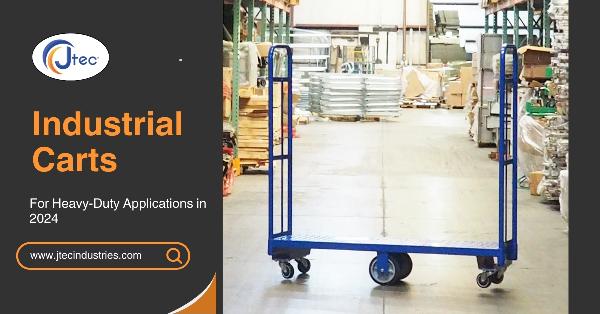Comparing Different Types of Industrial Carts: Which One Fits Your Needs?
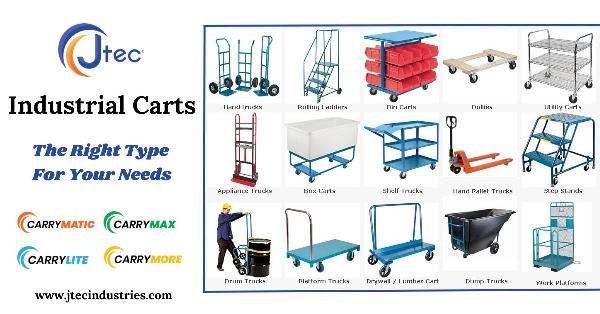
Strong 8k brings an ultra-HD IPTV experience to your living room and your pocket.
Industrial carts have become essential equipment in factories, warehouses, and production lines, as they provide an efficient way to transport materials, equipment, and goods. They help streamline operations, reduce manual labor, and increase productivity. However, with a wide variety of industrial carts available, choosing the right one for your specific needs can be challenging. In this blog, we will explore the different types of industrial carts commonly used in workplaces and highlight the key features that make each type suitable for specific tasks.
Platform Carts
Platform carts are one of the most widely utilized industrial carts in factories and warehouses. They are created of a flat platform, usually made of steel or aluminum, four wheels, and a handle for easier movement. These carts are designed to transport a wide range of objects, including large machinery and bulk supplies.
Key Features:
Versatility: Appropriate for transporting various items, including heavy and bulky materials.
Durability: Built to resist rough handling and heavy loads.
Ease of Use: Simple design with a specific operation, making them user-friendly.
Ideal For:
Moving heavy equipment in factories.
Transporting bulk materials in warehouses.
Supporting production lines with material handling.
Shelf Carts
Shelf carts have multiple levels or shelves, making them perfect for moving and organizing smaller objects. These carts are frequently used in production lines, assembly areas, and maintenance departments.
Key Features:
Organization: Having multiple shelves helps to organize tools, parts, and materials more effectively.
Accessibility: Items are easily accessible, reducing the need for bending or stretching.
Mobility: Usually equipped with rotating wheels for smooth movement in tight spaces
Ideal For:
Assembly lines require the organization of many pieces.
Maintenance departments for tool and equipment transportation.
Production areas require easy access to materials.
Utility Carts
Utility carts may transport tools, supplies, and equipment in many workplaces. They frequently include shelves, compartments, and, in some situations, drawers, which provide lots of storage space.
Key Features:
Multi-Functional: Can store and transport various items, from tools to maintenance supplies.
Durability: Commonly made from heavy-duty plastic or metal, designed for regular use.
Mobility: Rotating wheels allow for easy movement, even in narrow spaces.
Ideal For:
Workshops and repair areas for tool storage and transportation.
Factories for moving small equipment and supplies.
Warehouses for general material handling tasks.
Tool Carts
Tool carts are primarily made for storing and transporting tools in industrial cases. They typically contain multiple drawers, compartments, and lockable areas to protect expensive tools.
Key Features:
Organization: Keeps tools organized and easily accessible, improving workflow.
Security: Lockable drawers provide added security for valuable tools.
Durability: Built to handle the wear and tear of daily use in demanding environments.
Ideal For:
Workshops and repair shops for organizing and securing tools.
Production lines where quick access to tools is necessary.
Maintenance departments need portable tool storage.
Cage Carts
Cage carts, also known as wire or enclosed carts, have sides made of metal bars or mesh. These carts are used to keep objects secure during transportation, preventing them from dropping or being tampered with.
Key Features:
Security: Enclosed sides keep items secure and prevent loss during transport.
Visibility: The open design allows for easy visibility of the items.
Durability: These carts, which frequently consist of steel, are designed to last and handle heavy loads.
Ideal For:
Warehouses for transporting valuable or sensitive items.
Factories for securing parts and materials during movement.
Distribution centers where item security is a priority.
Tilt Carts
Tilt carts, also known as dump carts, are designed for easy unloading. They feature a tilt mechanism that lets you tilt the cart to quickly and efficiently dump its contents.
Key Features:
Ease of Unloading: The tilting feature makes unloading easier and requires less physical labor.
Versatility: Suitable for transporting loose materials, waste, or bulk items.
Durability: Constructed from heavy-duty materials to handle rough use.
Ideal For:
Factories and production lines for transporting and dumping waste materials.
Construction sites for moving and unloading bulk materials.
Landscaping operations require frequent unloading of soil or debris.
Order-Picking Carts
Order-picking carts are specialized carts used in warehouses and distribution centers to efficiently pick and transport orders. These carts typically feature multiple shelves and compartments to help organize products throughout the picking process.
Key Features:
Efficiency: Designed to streamline the order-picking process, reducing the time spent walking and searching for items.
Organization: Multiple shelves and compartments help keep orders organized during transport.
Mobility: Lightweight and easy to operate, even in crowded warehouse halls.
Ideal For:
Warehouses and distribution centers for order fulfillment.
Retail stores for restocking shelves or handling large orders.
E-commerce facilities for efficient order processing and shipping.
Conclusion
Choosing the right industrial cart depends on the specific tasks and environment in which it will be used. Platform carts are ideal for handling large and bulky items in factories and warehouses. Shelf and utility carts offer excellent organization and accessibility, making them well-suited for manufacturing lines and maintenance departments. Tool carts and cage carts provide security and durability, making them perfect for workshops and manufacturing facilities. Tilt carts simplify the unloading of materials, making them valuable for construction and landscaping. Finally, order-picking carts are essential in warehouses and distribution centers to ensure efficient order fulfillment.
Understanding the benefits and limitations of each type of industrial cart allows you to select the one that best meets your requirements, increasing productivity and safety in your operations.
Read Also: The Evolution of Industrial Carts: From Simple Wheels to Smart Solutions
Note: IndiBlogHub features both user-submitted and editorial content. We do not verify third-party contributions. Read our Disclaimer and Privacy Policyfor details.



